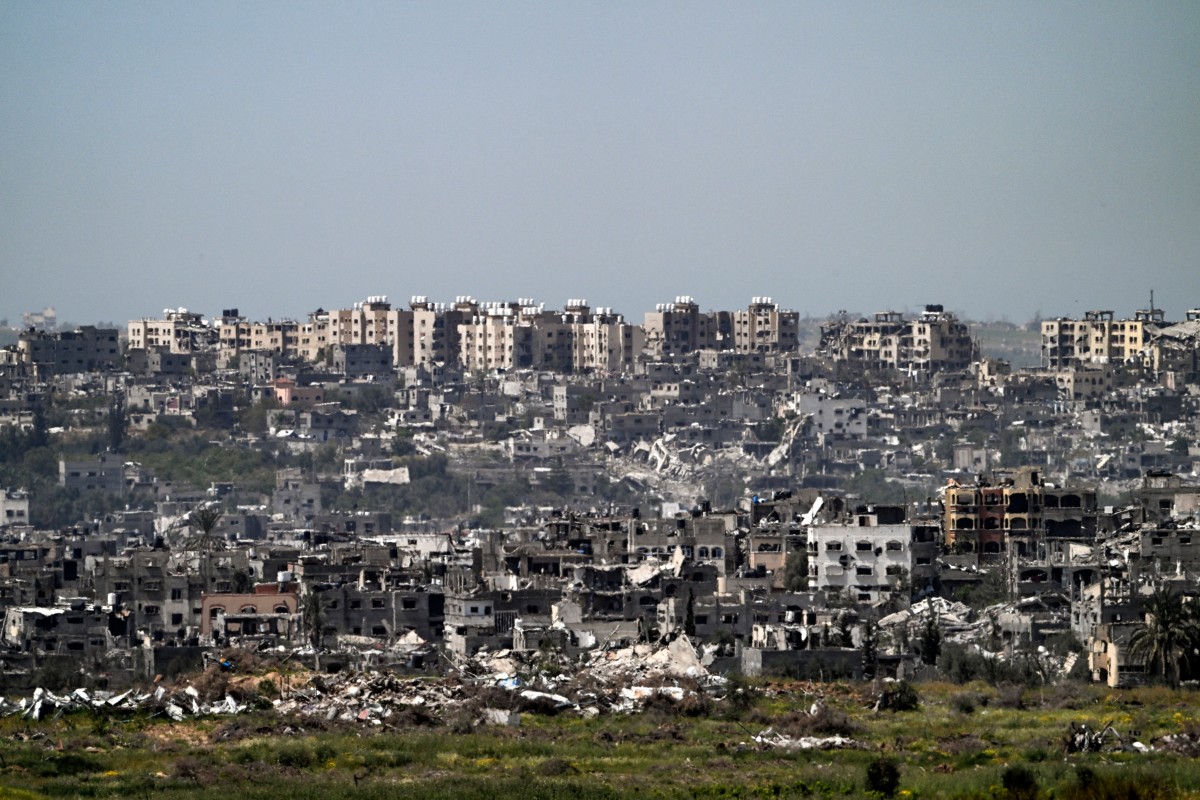Jerusalem, Undefined – Dominic Allen, the head of the United Nations Population Fund (UNFPA) covering Gaza, said he was “terrified” of what could happen if the war went on any longer.
He told AFP the situation was “beyond catastrophic” with gaunt and starving people spending their days searching for food, and medicine running desperately low.
The British-born official, who spent a week in the besieged Palestinian territory last month, said even when aid got through the border, there were still major problems getting it to those who need it most, particularly women and girls.
QUESTION: What is Gaza like now?
ANSWER: “What I saw across the Gaza Strip is beyond catastrophic. I have been to Gaza many times before this war, and what I saw (this time) was truly heartbreaking. Gaza is dust.
“Everybody we drove by and many we spoke to were gaunt, starving, hungry and looking frail. Everybody was looking for food.
“We’re really worried about pregnant women and breastfeeding women. Doctors and midwives at the Al-Sahaba Maternity Hospital (the only one functioning in the north) say women are giving birth to smaller babies caused by malnutrition, dehydration and fear.
“They’re telling us anecdotally that they are seeing no normal-sized babies being delivered in Gaza, an increase in the number of stillborns and neo-natal deaths as well.
“Delivery rooms are overwhelmed. A midwife described women giving birth on the floor because they were at maximum capacity.
“They’re having to use thread for umbilical ties.”
QUESTION: Many international organizations have raised concerns about how difficult it is to get aid into Gaza. How has it been for you?
ANSWER: “UNFPA has had a number of our suppliers denied entry into Gaza at checkpoints and screenings.
“Access to the north is very challenging… many UN missions to the north have been denied over past months.
“People are on the verge of famine right now in Gaza. This is caused by a huge backlog in supplies and assistance.”
QUESTION: How are you delivering medicines?
ANSWER: “We brought what they needed the most, the anaesthetics, the oxytocin (and other items that need to be kept cold) and put them in the back of our armored vehicle and deliver them by hand to the hospital.”
QUESTION: What do the hospitals most need?
ANSWER: “They’re asking for fuel. Their hospitals are running on fumes. One said if a patient needs surgery, they have to take a canister of gasoline or diesel (with them) to run the generator in the operating theatre. They lack some of the most basic items to help support and give safe birth care for mothers and babies.”
QUESTION: Are you able to deliver period products for women and girls?
ANSWER: “There are many thousands of cases of insufficient menstrual hygiene items, really shocking reports of women who have had to fashion their own sanitary products from pieces of tents. So one of the UNFPA’s priorities is to get in at scale dignity kits, hygiene kits and menstrual hygiene management kits.”
QUESTION: Are you afraid of what will happen, particularly if there is an offensive on Rafah?
ANSWER: “Every person I spoke to in Rafah is so fearful about what will come next for a potential ground incursion in Rafah (in the south).
“I left with a real sense of fear about what could come next. If the Emirati Hospital is managing nearly 100 births every single day, what will happen to those pregnant women and babies?
“What will happen to the 1.2 million people currently living and sheltering in Rafah right now? A city which only housed 250,000 before is bursting in capacity.
“I left Gaza terrified of what could come next for them. When you see small, frail babies cuddled together because there are not enough incubators, two or three in one, the frailty of life is so clear.”
The unprecedented Hamas attack on October 7 resulted in about 1,160 deaths in Israel, mostly civilians, according to an AFP tally of Israeli official figures.
Israel’s retaliatory campaign has killed at least 32,845 people, mostly women and children, according to the health ministry in Hamas-run Gaza.

